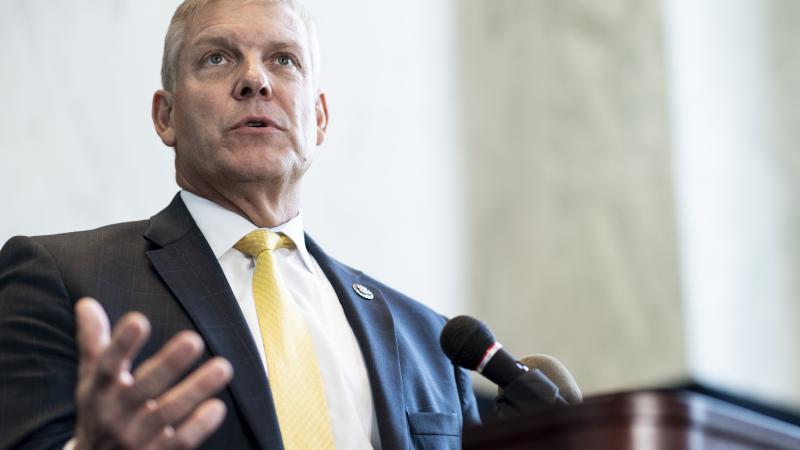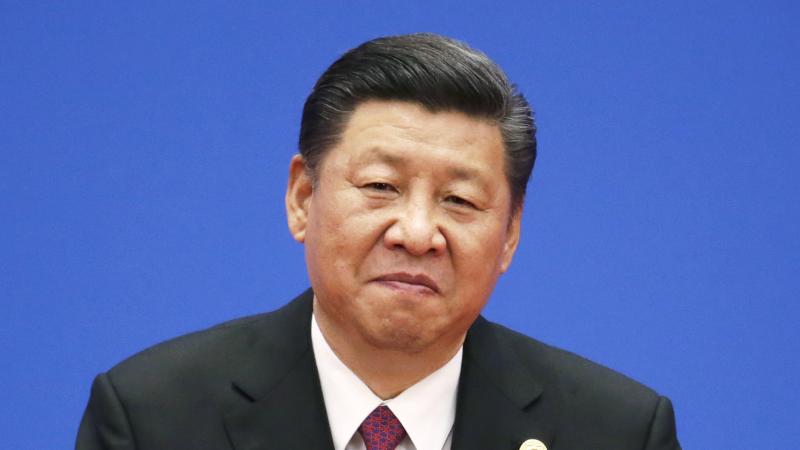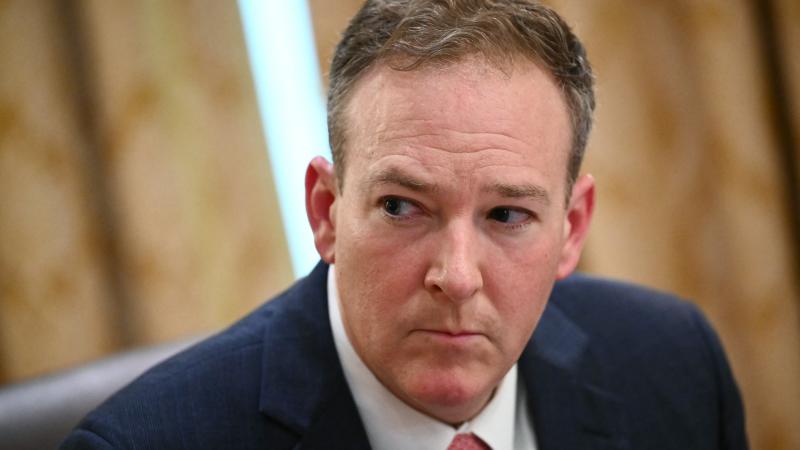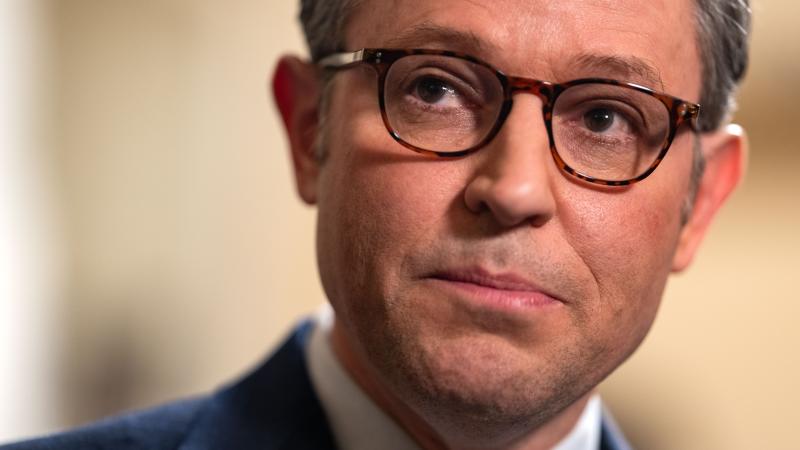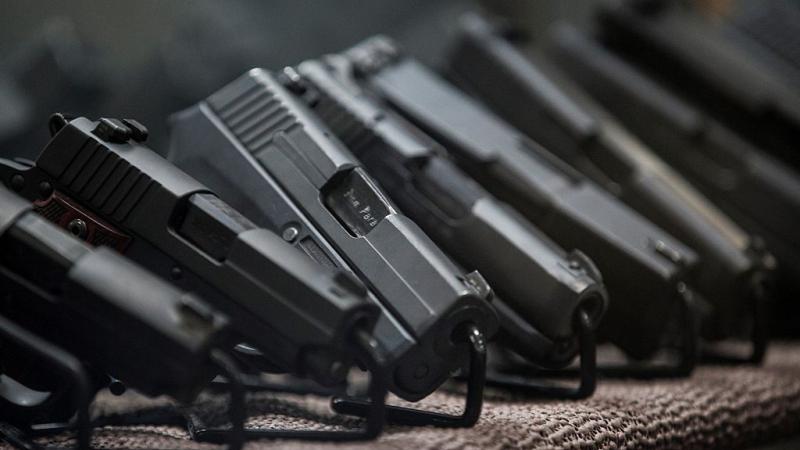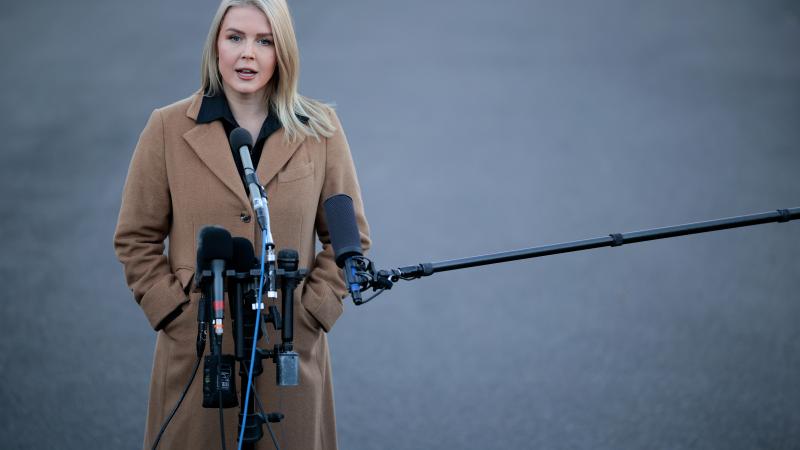Momentous cases (and menial tasks) on docket for Barrett, high court's junior justice
New Justice Amy Coney Barrett will help decide cases on abortion, Obamacare and voting law — and also serve as notetaker, doorkeeper and delegate to cafeteria committee.
Supreme Court Justice Amy Coney Barrett is the newest member of America's highest court, and while she will have the weight of the world on her shoulders, she's got three other jobs as the junior justice: note-taking, answering the door, and sitting on the court's cafeteria committee.
"Before arguments next Monday, the justices are scheduled to hold their private conference, at which they decide which new cases to take on, on Friday," said a prominent court watcher who asked not to be identified.
"Presumably she would participate in this," the watcher said. "As the junior justice, she's responsible for answering the door and taking notes (it's just the nine justices; no staff or clerks).
That's right, the junior justice takes all the notes and answers the door. When they're all in the conference room — which Justice Elena Kagan calls the "real inner sanctum" — there are two doors. Kagan said there are no exceptions to the rule of who answers the door.
"Literally, if I'm like in the middle of a sentence — let's say it's my turn to speak or something — and there's a knock on the door, everybody will just stare at me, waiting for me to open the door," Kagan told The Washington Post. "It's like a form of hazing. So, that's what I do, I open the door. Pronto."
That will now be Barrett's job. But as a mother of seven, she's probably used to that.
And then there's the cafeteria committee. "I've been on the cafeteria committee for six years," Kagan said in 2017, who called it "kitchen duty." Justice Steve Breyer was on the cafeteria committee for 13 years, she added.
"I think this is a way to kind of humble people," she said. You've just been picked to join one of the most exclusive clubs in the world, "and now you are going to monthly cafeteria committee meetings where literally the agenda is what happened to the good recipe for the chocolate chip cookies."
The court watcher said: "Kagan brought us frozen yogurt, while Kavanaugh brought us pizza." This past July, the Wall Street Journal ran a piece headlined "Supreme Court's Junior Justice Has to Run the Cafeteria. Don't Eat There."
But luckily for Barrett, she won't have to do those jobs right away. Justices are working remotely, so her kitchen duty will wait until they return to the court.
Barrett will need to hit the ground running. The November argument session opens on Nov. 2. The day after Election Day, the court will hear arguments in Fulton v. Philadelphia, involving the balance between religious freedom and anti-discrimination laws. Then on Nov. 10 follows the Affordable Care Act case that Senate Democrats frequently cited in opposing the nominee.
In Friday's conference to pick new cases, a couple stand out. There's Trump v. Knight First Amendment Institute. The issue in that case, according to Scotus Blog, is "whether the First Amendment deprives a government official of his right to control his personal Twitter account by blocking third-party accounts if he uses that personal account in part to announce official actions and policies."
Then there's an abortion case the justices will decide whether to take up, Dobbs v. Jackson Women's Health Organization. In that case, Scotus Blog says the issues are "whether all pre-viability prohibitions on elective abortions are unconstitutional" and "whether abortion providers have third-party standing to invalidate a law that protects women's health from the dangers of late-term abortions."
Then there is "all of the current election-related litigation, including requests regarding absentee-ballot deadlines" in Wisconsin and North Carolina, the court watcher said. "The Wisconsin case has been sitting at the court for a while, which at least suggests that they might be waiting for her to break a tie. And over the weekend Pennsylvania Republicans came back to the Supreme Court on mail-in ballots, presumably hoping for a better result with ACB on board."
That dispute "began when the Pennsylvania Democratic Party filed a lawsuit that challenged parts of the state's absentee-ballot system in light of the COVID-19 pandemic," Amy Howe wrote on her website Howe on the Court. "Relying on a provision in the state's constitution, the Pennsylvania Supreme Court extended the deadline for mail-in ballots until Nov. 6. Ballots that are clearly postmarked after Election Day would not be counted under the Pennsylvania court's ruling. Ballots postmarked on or before Election Day, and ballots with no postmark or an unclear postmark, would be counted if received by the new deadline."
Meanwhile, the Supreme Court has been operating in new ways amid the COVID-19 pandemic. The court "is doing telephone arguments with live audio, so — unlike other justices — her debut will be streamed live," noted the observer. "And the justices are also using a different format for the oral arguments by telephone, in which they take turns asking questions — but everyone asks questions. She'll go last as the junior justice."
It's unclear, the court watcher said, if Barrett will take over the late Justice Ruth Bader Ginsberg's office or if a more senior justice will snatch that.
"I don't think she necessarily gets the crummiest office," the watcher said. "I think that the RBG chambers are up for grabs, with the option to move in going to the next-most-senior justice," who is Breyer. "But sometimes it may not be worthwhile to move if you already have a chambers that you like well enough."
And when the justices return to the bench, Barrett will sit at one end — another sign that she's the junior member.




